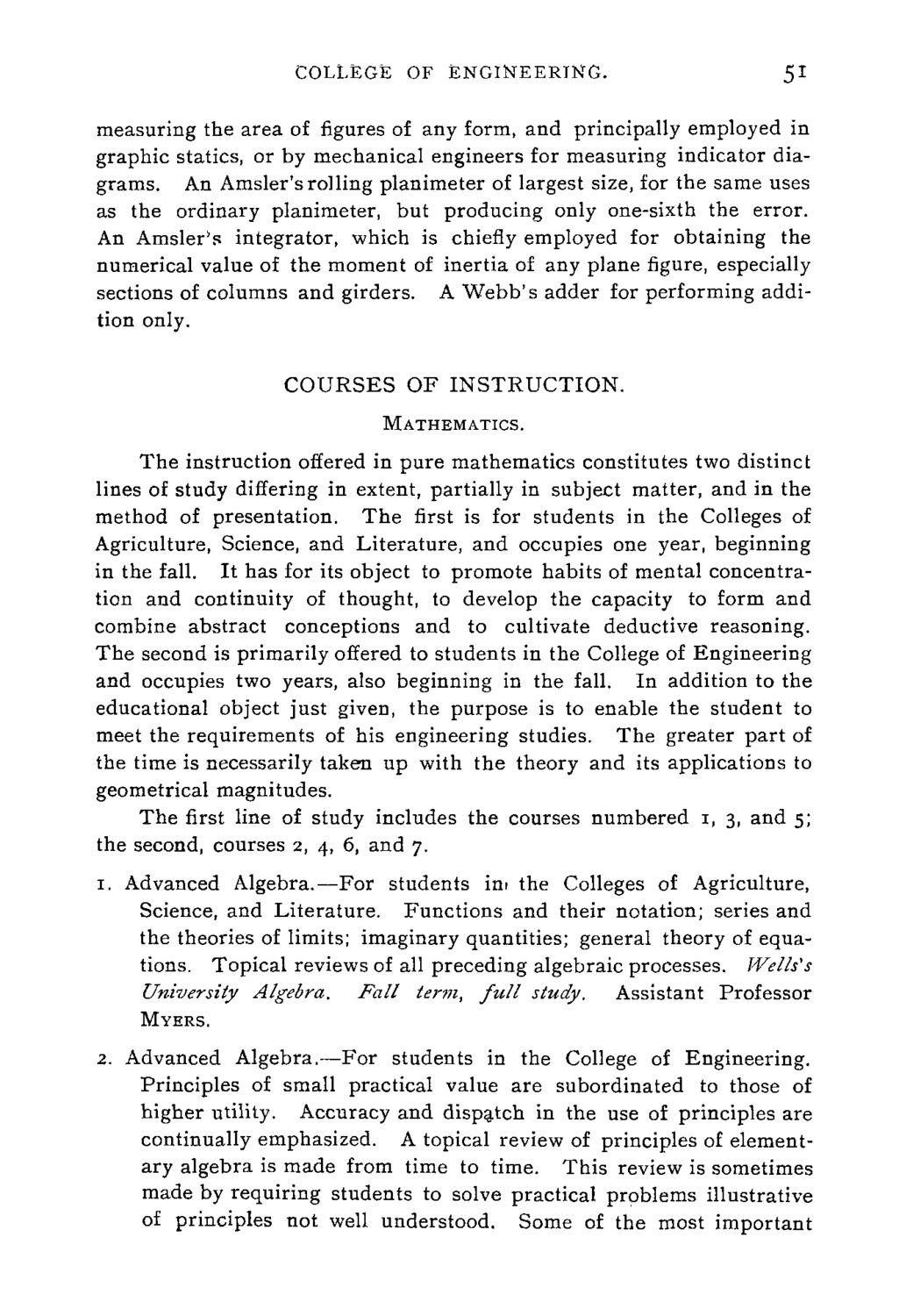| |
| |
Caption: Course Catalog - 1892-1893
This is a reduced-resolution page image for fast online browsing.

EXTRACTED TEXT FROM PAGE:
COLLEGE OF ENGINEERING. 51 measuring the area of figures of any form, and principally employed in graphic statics, or by mechanical engineers for measuring indicator diagrams. An Amsler'srolling planimeter of largest size, for the same uses as the ordinary planimeter, but producing only one-sixth the error. An Amsler's integrator, which is chiefly employed for obtaining the numerical value of the moment of inertia of any plane figure, especially sections of columns and girders. A Webb's adder for performing addition only. COURSES OF INSTRUCTION. MATHEMATICS. The instruction offered in pure mathematics constitutes two distinct lines of study differing in extent, partially in subject matter, and in the method of presentation. The first is for students in the Colleges of Agriculture, Science, and Literature, and occupies one year, beginning in the fall. It has for its object to promote habits of mental concentration and continuity of thought, to develop the capacity to form and combine abstract conceptions and to cultivate deductive reasoning. The second is primarily offered to students in the College of Engineering and occupies two years, also beginning in the fall. In addition to the educational object just given, the purpose is to enable the student to meet the requirements of his engineering studies. The greater part of the time is necessarily taken up with the theory and its applications to geometrical magnitudes. The first line of study includes the courses numbered 1, 3, and 5; the second, courses 2, 4, 6, and 7. 1. Advanced Algebra.—For students im the Colleges of Agriculture, Science, and Literature. Functions and their notation; series and the theories of limits; imaginary quantities; general theory of equations. Topical reviews of all preceding algebraic processes. Wells's University Algebra. Fall ter7n, full study. Assistant Professor MYERS. 2. Advanced Algebra.—For students in the College of Engineering. Principles of small practical value are subordinated to those of higher utility. Accuracy and dispatch in the use of principles are continually emphasized. A topical review of principles of elementary algebra is made from time to time. This review is sometimes made by requiring students to solve practical problems illustrative of principles not well understood. Some of the most important
| |